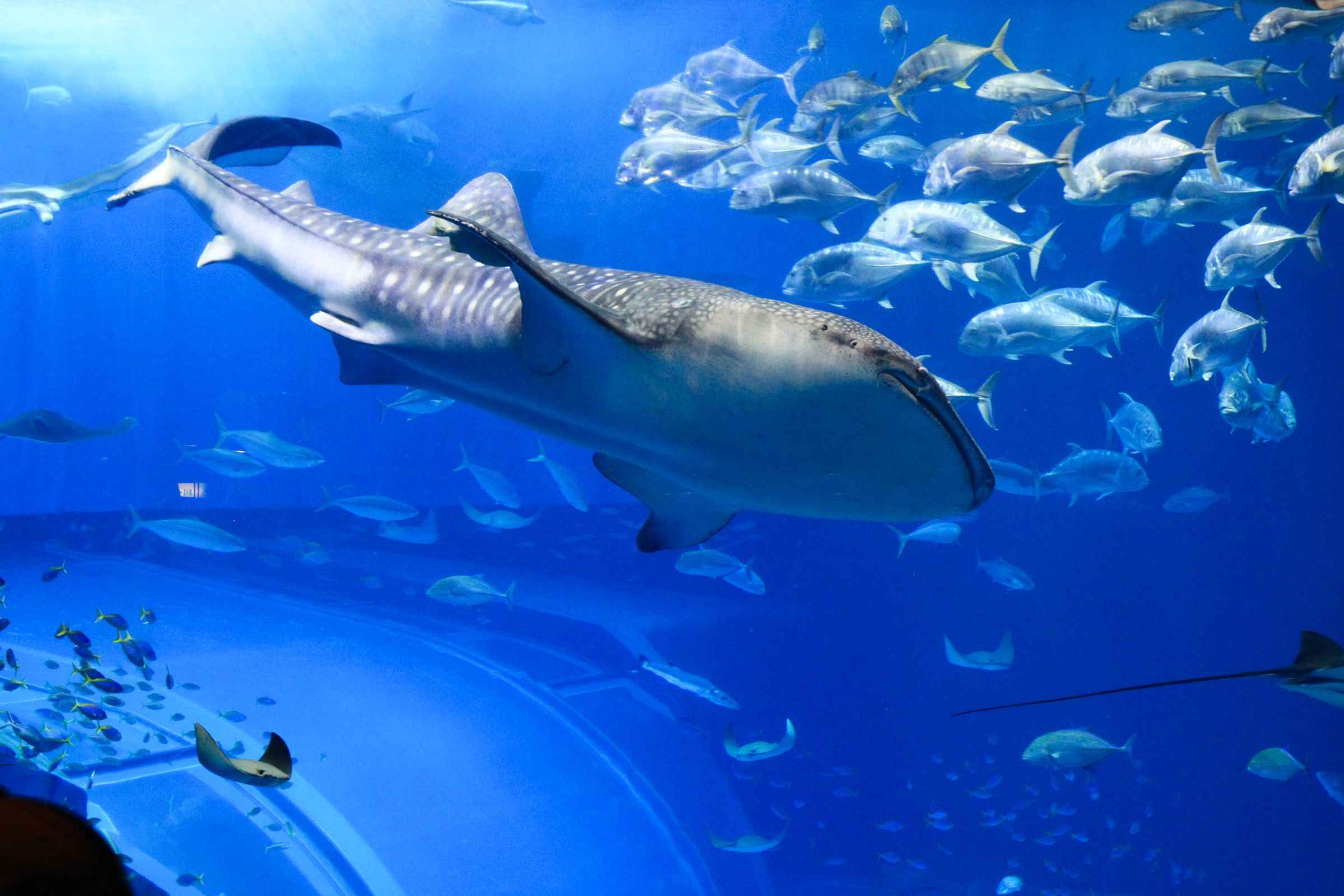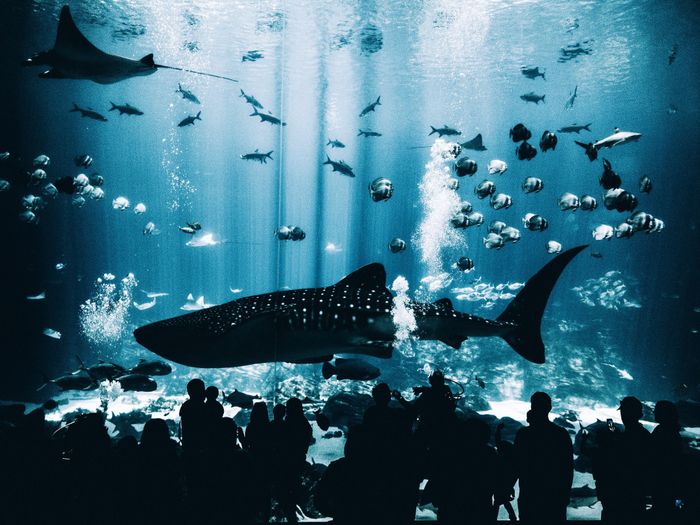Social Lives of Sharks
Whether or not sharks have a social life has always been a big question. Read on, we have the answer.

Contrary to what we believe, sharks can have social lives. Their social behaviors are pretty different compared to what we see on TV. In movies, we often only see one shark attacking the humans that bleed themselves all over the water. But sharks can coordinate and understand a fellow shark or hang out just because they want to. It’s kind of like how wolves know when to step in or how dolphins can coordinate with one another for whatever devious and antisocial plot they have.
Sharks as Masters of the Hunt
In every shark movie, we often see only one shark attacking. Because for many, sharks rarely do attack in groups. Usually, fish gather in groups or schools to protect themselves from bigger fish. Sharks are no different; they understand their limits and even the difference between themselves and another species of shark. The hammerhead shark being the clear-cut example. The hammerhead shark’s special head shape allows it to bludgeon, pummel, or thrash against other shark species, giving them the privilege to be pushy and obnoxious with other sharks.

When other shark species see that there’s a group of hammerhead sharks, they are either reluctant or back off because they know the difference. But there are some that still push their way through because they’re just competitive that way. The great white shark is known to have a competitive streak. They’re your typical “show-offs” and travel in a group, not only to trash bigger opponents but also to show-off to the other great white sharks.
But not all sharks develop social skills out of competition or to be rude. Bonnethead sharks always offer a helping hand to their fellow bonnethead sharks. By releasing cerebrospinal fluid in the water, they signal the other bonnethead sharks where the bounty is so everyone gets their fill.
Do Sharks Have Friends?
Yes, these supposedly mindless killing machines do have friends. While some of us are quick to attribute their hanging out together as a preventive and protective measure, some studies have discovered that they just genuinely enjoy that other shark’s company. Lemon sharks are probably one of the most blatant examples to this rule. They pick up smaller lemon sharks and other fish with no apparent survival benefit. They stick together, often communicating or feeding together.
While lemon sharks are like the extroverts that randomly adopt introverts, you have the nurse shark, white tip reef shark, and spotted wobblegong that prefer their own kind. Nurse sharks hang out with their own kind, especially since they’re one of the most docile species of sharks. They’re like your typical shut-in that only scuttles out when they need food. Other than that, they often just huddle up together and sleep like a bunch of couch potatoes.
White tip reef sharks on the other hand are like a group of college frats or sororities. They party all night before retreating to their communal spot in the morning to sleep.

Spotted wobblegongs on the other hand are like high school cliques. If you don’t have the same attributes as they do, they kick you out. They only like spotted wobblegongs with the same attribute, kind of like how high school cheerleaders or football jocks only hang out with the kids that just ooze confidence or are extremely aesthetically pleasing.
Basking sharks, on the other hand, love chilling with members of the same sex. They rarely hang out with the opposite gender, only being in the same area because of either mating season or there’s just a lot of food. But other than that, they’d rather go hang out with their bros or their gals when they go scouring the sea for more food. So, apparently, they do segregate themselves based on sex.
Sand tiger sharks don’t just have friends. They have families! Some studies even say that these sharks, despite their gawking, have best friends and form families with other sand tiger sharks. Some say however it’s due to evolution since while they’re not a threat to humans, we humans are a threat to them. While they do understand what it’s like living in a group, that doesn’t mean they’re smart enough to figure out a fishing trap meant for other fish.

How Do We Know that Sharks Have a Social Life?
Over the years, scientists have developed devices that utilize sonar or a variety of other things to track a shark’s behavior. One of the most commonly used one is what people call an acoustic pinger. These acoustic pingers are strapped onto the shark’s fin or wrapped around it before they’re released into the water. Once released, they are tracked down by a hydrophone that has a receiver, allowing the boat to follow it. These pingers are often used for short-term studies, lasting only a week to maybe 2 months at maximum. But they do have acoustic pingers that last longer but instead of just strapping it onto the shark, they surgically implant it into the shark before letting it run. But these are better for smaller sharks.
For bigger sharks, scientists use a GPS tracking system to track the SPOT tag on the shark. The tag is strapped onto the fin of the shark before letting the shark go back down. Unlike the pingers, these don’t rely on sound but they only activate whenever the shark’s fin rises from the water so it’s not ideal for underwater swimmers like Greenland sharks.
But sometimes, we don’t have a clear idea how big the shark is so scientists just toss in Bioacoustic Probes in the water. Think of them as your underwater tape recorder and it tracks all sorts of sounds. The scientists then match the sound wave to other sounds made by sharks to identify which behavior belongs to what. The Bioacoustic Probes are useful especially when they want to figure out different kinds of feeding behaviors and mating behaviors. It’s better than throwing a diver underwater in a shark cage wherein they may possibly be seen as an invader by a great white shark or a shortfin mako shark before they are turned into a human-version of chum.
Sharks are More than Just Predators
While yes, we can be quite jaded about our view on sharks especially since we hear stories of them making minced meat out of us. Sharks actually have a small society of their own which we just don’t completely understand yet. But as studies progress, eventually, we’ll learn how to work with sharks and not turn ourselves into their food.




